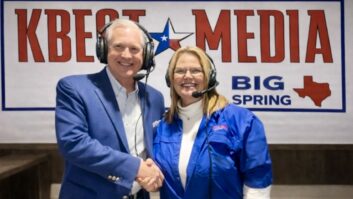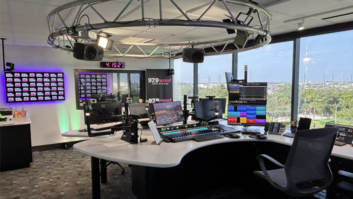Don’t eviscerate EEO rules for broadcasters.
That’s part of the message to the FCC from a group of organizations that support equal employment opportunity rules.
The FCC invited comments on how to improve EEO enforcement in broadcasting. The Multicultural Media, Telecom and Internet Council submitted a set of five proposals on behalf of itself and 36 other organizations. But they emphatically argued against an idea put forth recently by a group of 82 broadcasters that would raise the current threshold at which EEO requirements kick in from five full-time employees to 50; the supporters told the FCC that this idea “would put an end to most broadcast EEO enforcement.”
“The 82 broadcasters declare that 50 employees is ‘the number regarded by the human resources profession as demarcating smaller from large for the purposes of hiring a human resources manager,’” the EEO supporters wrote.
[Read: 82 Broadcasters Want to Change the Definition of a Small Station]
“What the 82 broadcasters overlook is the fact that the amount of ‘paperwork’ the FCC requires that does not have to be done anyway as part of any business’ routine personnel functions requires far less time than a full-time employee’s 40 hours per week. In fact, it is exactly the same work that routine recruitment entails: maintaining an email list, hitting a key to send out job notices and posting the notices online — while also ensuring that the posts and job notices are widely accessible and that records of the postings are maintained in the (very rare) event of an FCC audit. This additional ‘burden’ requires more like 40 seconds per week than 40 hours per week.”
The EEO supporters argue that compliance is not arduous and that over five decades, “not a single broadcaster credibly claimed that it suffered any material financial hardship because of the need to comply with the EEO rule. Nor did any broadcaster ever claim that the rule was too dense for it to comprehend.”
They argue that few radio stations and only about half of all television stations employ more than 50 people full-time. “In several states, every radio and nearly every television station would be EEO-exempt. Nearly all noncommercial radio and television stations nationwide would be exempt.
The effect of exempting so many broadcasters from EEO compliance would be devastating, they wrote. “Many broadcast careers begin in small stations. Cutting off EEO protection at these points of entry would have a ripple effect on the rest of the industry. Large broadcasters that do not discriminate would have less diverse, and thus less talented pools of trained applicants from which to draw.”
Finally, they wrote, “the idea that a broadcaster of any size greater than ‘mom and pop’ should be exempt from EEO compliance is deeply flawed and troubling. Broadcast ownership is a privilege that necessarily includes EEO compliance; ownership coupled with nondiscrimination is not a ‘burden.’ Discrimination is a burden.”
The EEO supporters took no position on two other suggestions from the 82 broadcasters, one that would require online posting of all full-time job openings by all licensees of any size including those with fewer than the current threshold of five full-time employees, and another that would have EEO reports filed by “entities” cover entire markets, to avoid a practice by some broadcasters of creating several small entities, each with fewer than five employees.
The supporters listed five priorities of their own. They told the FCC that:
- EEO data should be gathered as necessary for research on industry trends and EEO program effectiveness.
- EEO data should be requested from licensees “found to have failed to engage in the broad recruitment (e.g., via internet postings) that is required by current FCC precedent.” They said that failure to do so means that a licensee recruited primarily by word of mouth, which “has been deemed to constitute a racially discriminatory scheme when performed from a homogeneous staff.”
- Renewal applications and EEO audits should include a certification that job postings occurred before hiring decisions were made; they said this certification is common in other industries.
- The FCC/EEOC Memorandum of Understanding should be updated to ensure that the FCC immediately audits employment units that receive EEOC probable cause determinations.
- And “the commission should open an inquiry … into the pattern of consistently very low representation of minorities in radio news.”
Among the organizations in the MMTC filing are the NAACP, National Urban League, American Indians in Film and Television, Japanese American Citizens League, League of United Latin American Citizens, LGBT Technology Partnership and Institute, and 30 other diversity-oriented organizations.
“Inasmuch as the FCC’s record on EEO enforcement has not been refreshed in detail since 2004, the 37 EEO supporters appreciate this long-awaited opportunity for the commission to complete the unfinished work from its 1998 proceeding on EEO enforcement,” they wrote.
[Subscribe to our newsletter and get it delivered right to your inbox.]







